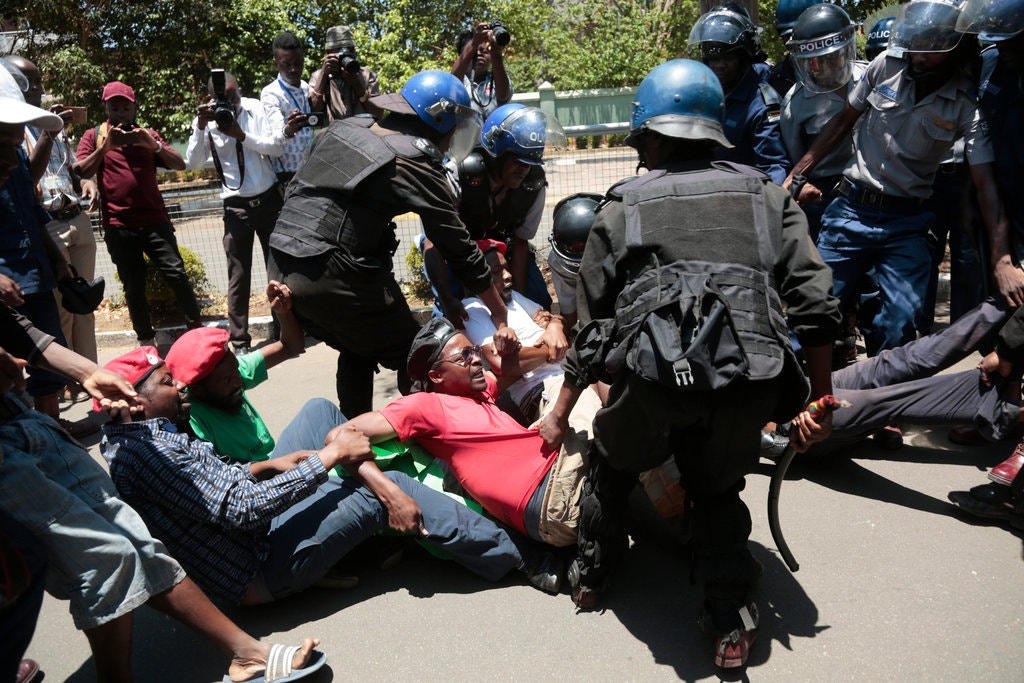Civil servants stung by Zimbabwe’s galloping inflation staged what they hoped would be a crippling one-day strike on Wednesday in a demand for increased wages, saying that their earnings are disappearing under skyrocketing prices.
It is the first time that government workers in Zimbabwe have been allowed to strike against their employer, and the action in the Southern African nation comes as inflation stands at approximately 300 percent, according to recent International Monetary Fund figures.
There were signs that the strike could spiral down into violence, as clashes erupted between government workers and police forces on Wednesday.
The civil servants’ work stoppage comes amid another ongoing walkout, this time by Zimbabwean doctors, many of whom have been on strike for about two months to demand increased wages paid in American dollars.
Continue reading the main story
On Tuesday, the government fired 77 of the striking doctors, out of the total of 1,680 doctors in the country. The 77 doctors were accused of failing to attend a disciplinary hearing that they had been summoned to attend by the country’s Health Service Board.
The government workers’ strike followed a walkout on Monday by nurses in local authority clinics in the capital, Harare. The nurses said that they were incapacitated and unable to work because of poor wages.
The Zimbabwean government seems acutely aware of the mounting crisis. On Tuesday, Monica Mutsvangwa, the minister of information, said at a news conference after a cabinet meeting that “medical services at most central hospitals” remained limited because “the public hospitals medical doctors’ strike has now gone beyond 63 days.”
The government has over the past months tried to appease its workers by providing allowances to help meet the rising cost of living. But that has not stopped the board representing civil servants in Zimbabwe, the Apex Council, from calling a strike.
A member of the council, Takavarasha Zhou, said, “Government workers are earning an equivalent of $40 or less, and so we appeal to the government to pay us better.”
ADVERTISEMENT
Continue reading the main story
The country’s police had approved the strike action, even though in August, with the backing of a court, the authorities banned demonstrations by members of opposition political parties and civil society organizations.
The striking workers on Wednesday sang and danced as they gathered outside the offices of the Apex Council. They waved placards with protest slogans directed at the government as armed police officers stood by.
The protesters had wanted to march to the offices of the Ministry of Finance, where they had intended to hand over a petition outlining their grievances. But heavily armed police officers blocked their movement.
“It’s like police gave us the right to march with their right hand, but quickly snatched it away with their left hand,” said Cecilia Alexander, the president of the Apex Council.
In the petition, the council appealed to the minister of finance, Mthuli Ncube, to “take our concerns seriously, without which the situation will lead to serious unrest.”
Charles Mubwandarikwa, chairman of the Progressive Teachers’ Union of Zimbabwe, which joined the strike in solidarity with other government workers, said, “Today we have come to send a clear message to the government.”
“We need increased salaries to be able to keep coming to work,” he added.
In the past, teachers’ unions have demonstrated against the government for better wages and improved working conditions with or without the assent of the authorities.






